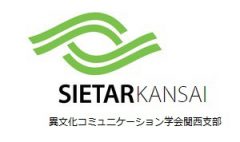SIETAR Kansai (Society for Intercultural Education, Training and Research)
November 2014 Program
Topic: The SIETAR Student Fair
Date: November 16 (Sunday) 14:00 pm-17:00 pm (13:30 presenters)
Presenters: Students from several universities in Kansai
Venue: Kwansei Gakuin University, Umeda campus Room 1004 (10F) 5 min. from Hankyu Umeda Chayamachi Exit, 10 min. from JR Osaka Midosuji exit, or 7 min. walk from Midosuji Subway’s Umeda exit and 4 minutes from Nakatsu Station exit. (19-19 Applause Tower, Chaya machi, Kita-ku, Osaka 530-0013) http://www.kwansei.ac.jp/kg_hub/access/index.html
Fee: Free for SIETAR members and students 500 yen for non-members
Language: English and Japanese
Social: People are welcome to come to dinner after the session at a reasonably priced Asian restaurant, the Monsoon Cafe. (¥2,000 without drinks) (http://www.monsoon-cafe.jp)
Reservations are required by November 5. Contact: fujimotodonna@gmail.com
Description:
Last year the SIETAR Student Fair was so successful, we received many requests for another one in 2014. So, this November we are giving the stage to students from Kobe City University of Foreign Studies, Kansai University, Kyoto University of Foreign Studies, Kwansei Gakuin University, Ritsumeikan University and others. Students will share their experiences with volunteer work, service learning, and study abroad programs. Come and see what activities university students in the Kansai area are engaged in, and bring your friends, classmates, colleagues, and family members. This is a great opportunity to support our young participants.
